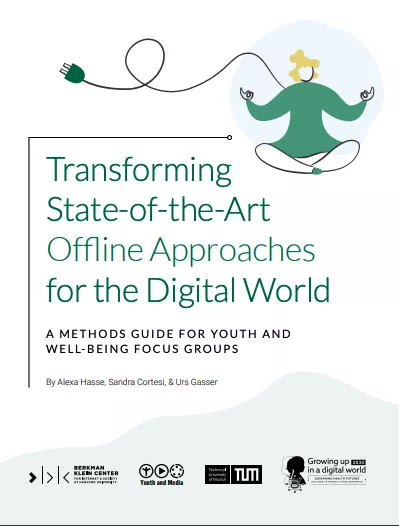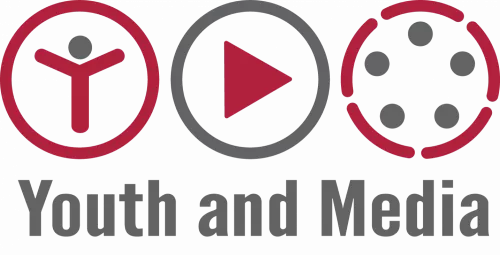
Transforming State-of-the-Art Offline Approaches for the Digital World
A Methods Guide for Youth and Well-being Focus Groups
No two people have the same definition of what “well-being” means to them. While we often use “mental health” and “well-being” interchangeably, well-being can encompass much more. Across the world, there are a number of frameworks people use to think about well-being – the “good life,” “quality of life,” and concepts like Ubuntu, the South African philosophy that one’s well-being is connected to that of the community.
Regardless of how we define well-being, we almost always frame conversations around the topic from an adult-normative viewpoint, even when we’re speaking about the well-being of young people. In our latest project, the Youth and Media (YaM) team at the Berkman Klein Center for Internet & Society set out to talk directly to young people to better understand how they think about well-being. We hope our research can inform the development of policies and programs around well-being that are aligned with youth’s experiences, needs, and interests.
We engaged young people across the U.S. in online focus group sessions to investigate their understanding of well-being. Our research focused around 8 areas of life that contribute to well-being: Physical and Mental Health; Social Interactions; Education, School, and Skills; Play, Hobbies, and Work; Living Conditions; Natural and Living Environment; Basic Rights and Opportunities to Participate; and Economic and Physical Safety.
Because online spaces are increasingly central to the lives of young people, we asked participants how they conceptualize well-being both in the offline as well as the online realms. We also included a quantitative survey about their level of Internet access and how they consume information about health and well-being online.
Our report, “Transforming State-of-the-Art Offline Approaches for the Digital World,’ provides a methodology that academics, governments and nonprofits across the world can use to replicate this research and learn about young people’s understanding of well-being in their own regions. The goal is to gather data that can help us all better understand youth and well-being and design policies and programs that reflect young people’s lived experiences and unique contextual realities.
This research is part of the Lancet and Financial Times’ Commission on Governing health futures 2030: Growing up in a digital world. The initiative explores the convergence of universal health coverage (UHC) with digital health, artificial intelligence, and other emerging technologies. It recommends actions for digital health stakeholders to ensure that the deployment of digital technologies in health promotes well-being, supports UHC, and transforms health systems to better serve our needs, with an emphasis on children and young people who stand to inherit the governance models being designed today.



